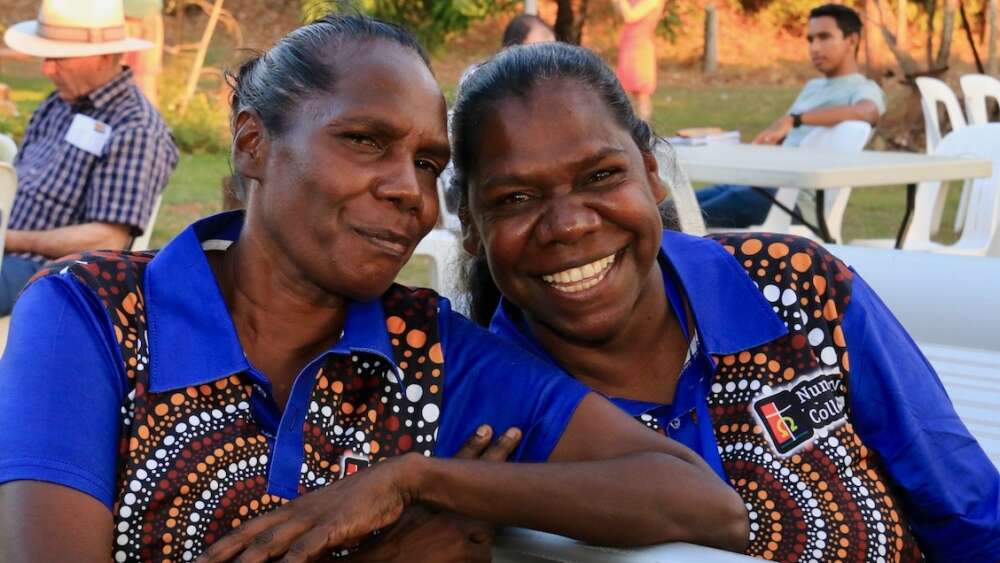Nungalinya College’s allocated number as a training and education provider in the Northern Territory tells its own story: RTO 01. That means it’s the first registered training organisation of its kind in the country. It is a remarkable story, unfolding over the last half-century. On the balmy Dry season afternoon and evening of 19 August, several hundred people gathered to celebrate the milestone of Nungalinya’s 50th anniversary.
The college began as the Anglican and Methodist missionaries of the Top End saw the need and importance of local Aboriginal leaders being raised up for their communities and churches – communities that, in most cases, had begun as mission stations in the preceding decades. A series of combined training events in the late 60s and early 70s in Darwin, spearheaded by long-term missionaries Jack Goodluck and Barry Butler, gave the impetus to find a permanent place for leaders to be trained in community development and Christian ministry.
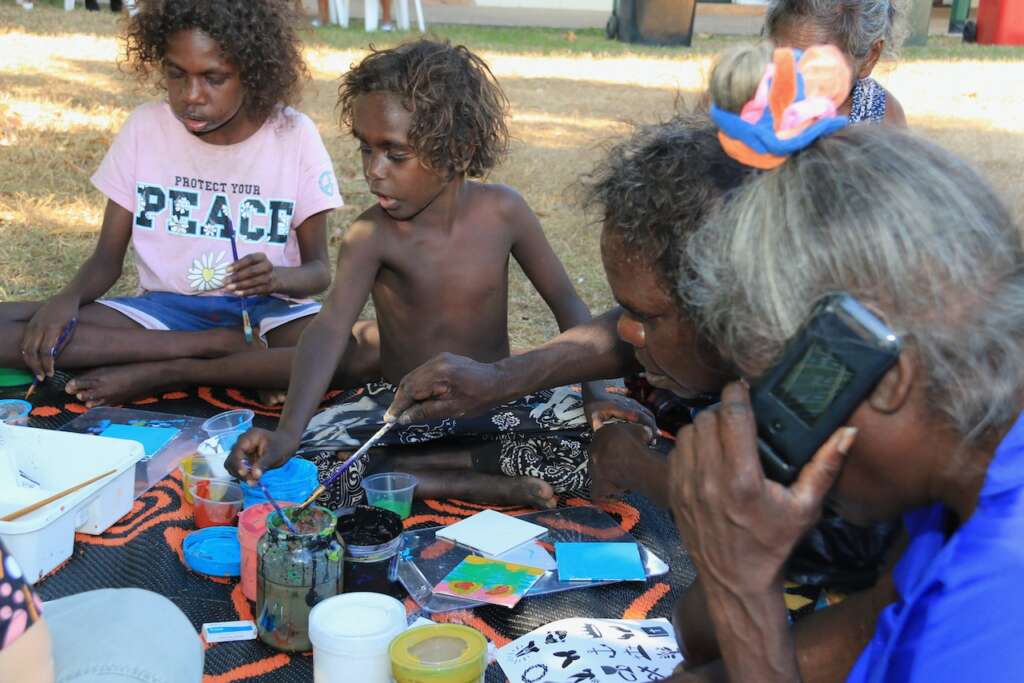
Children and adults engage in painting at Nungalinya’s 50th anniversary celebration.
An allotment of several hectares was acquired on the growing edge of Darwin’s spreading suburbia, now the heart of the residential northern suburbs at Casuarina. The name Nungalinya was gifted by the Larrakia, traditional owners of Darwin’s land and waterways. It refers to a significant Dreaming ancestor, present in the land/seascape as a rocky shelf off Casuarina beach, clearly visible at low tide. Larrakia could see the link between Nungalinya rock and Yahweh God as the “rock of our salvation”. The college remains grateful for this connection with Larrakia, particularly because the first Aboriginal principal of the college, from 1995, was a Larrakia man, the late Rev. Wali Fejo. At the anniversary celebration, his daughter Lynette provided the Welcome to Country.
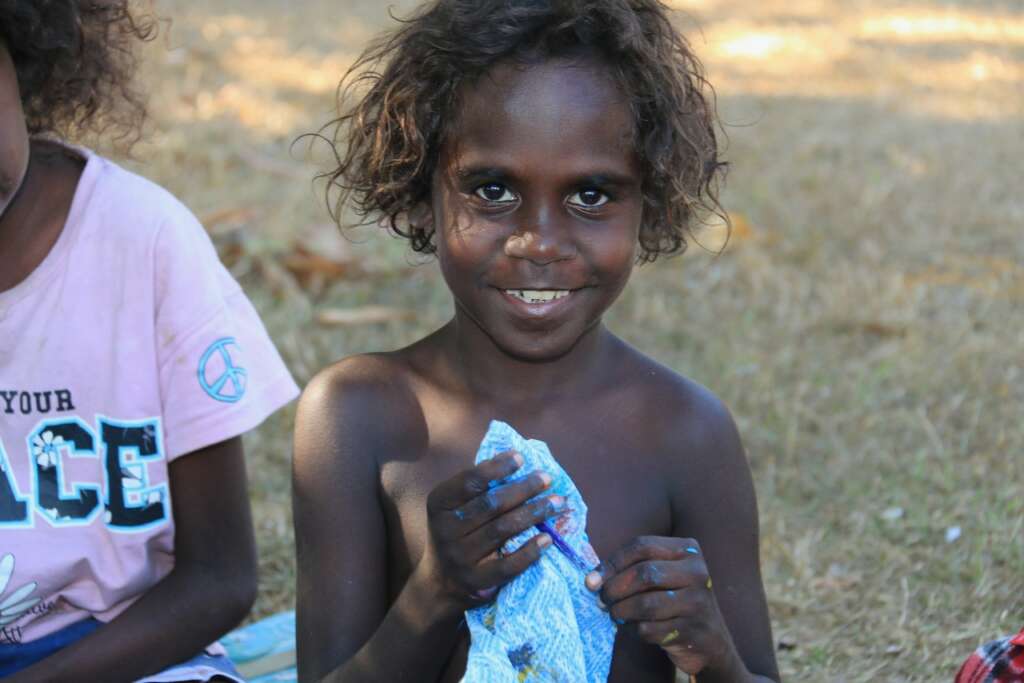 In 50 years, Nungalinya College has seen enormous growth, as well as changes in its offerings. The celebration day provided tours of the grounds – including traditional food trees that had been planted as the college was rebuilt after being physically wiped out by Cyclone Tracy in its second year. Visitors were also invited to explore much more recent developments: a Bible garden with plants from the Middle East, a symbolic Garden of Eden and a Way of the Cross, passing by Gabbatha and Golgotha and culminating in an empty tomb.
In 50 years, Nungalinya College has seen enormous growth, as well as changes in its offerings. The celebration day provided tours of the grounds – including traditional food trees that had been planted as the college was rebuilt after being physically wiped out by Cyclone Tracy in its second year. Visitors were also invited to explore much more recent developments: a Bible garden with plants from the Middle East, a symbolic Garden of Eden and a Way of the Cross, passing by Gabbatha and Golgotha and culminating in an empty tomb.
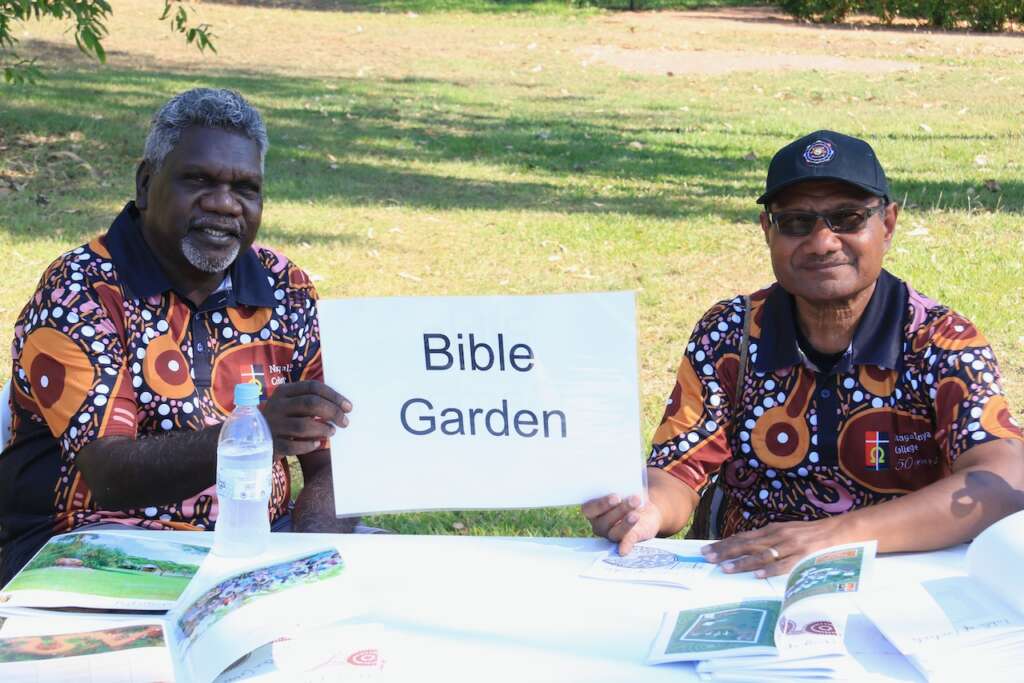
Nungalinya teachers James Woods, left, and Amos Leana
But of course, the anniversary was more focused on people. All the students and staff who had participated in the college were listed, and a film documentary produced by Warwick Vincent, looking back and forward, was launched. Many former teachers came back – many from interstate – to see how Nungalinya has continued to develop.
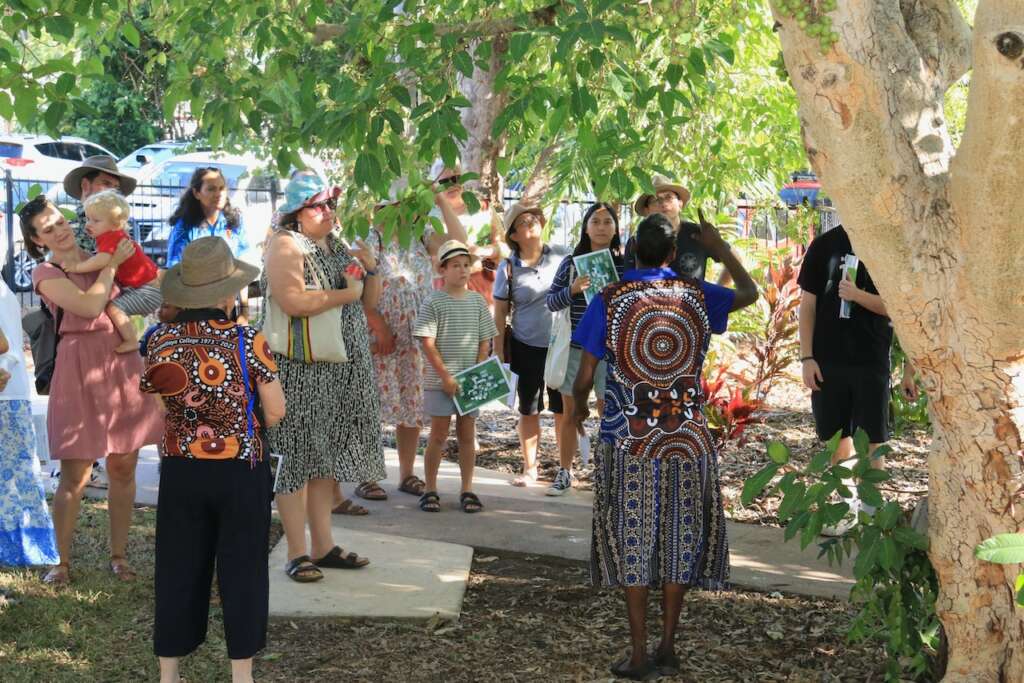
A tour group engages with the college grounds
After a shared meal, a typical fellowship/worship meeting was held – characteristic of Arnhem Land church life since the Elcho Island revival of 1979 took place. Many groups shared danced items to recorded songs, kicking up the sand with traditional foot movements, waving colourful flags and performing actions that connect with centuries of ceremony and with contemporary Christian worship at the same time.
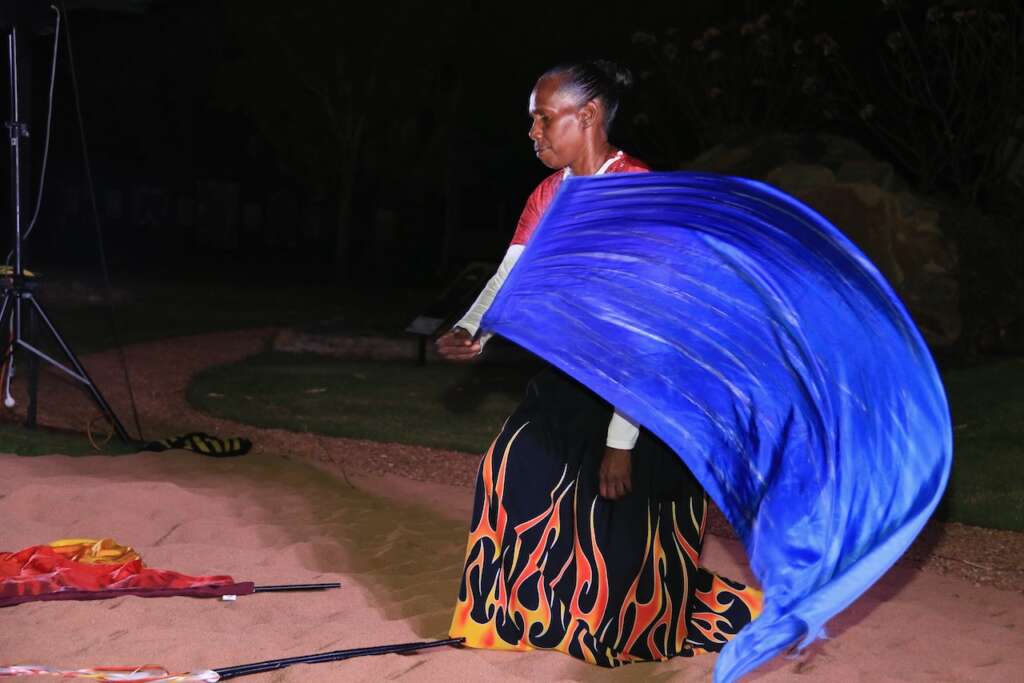
Mandy Manggurra performs a dance.
What was so apparent was that this is a genuinely Indigenous college, which Aboriginal people (and the occasional Torres Strait Islander) from across Australia, and especially from the Northern Territory, love being part of and are thankful for. They are proud of sharing their language and cultural identity with one another, across the dozens of language groups that people are from. Nungalinya College is also proud of this multicultural context – each day’s chapel service uses multiple Aboriginal languages, in the songs, prayers and Bible readings, as did the anniversary celebration.
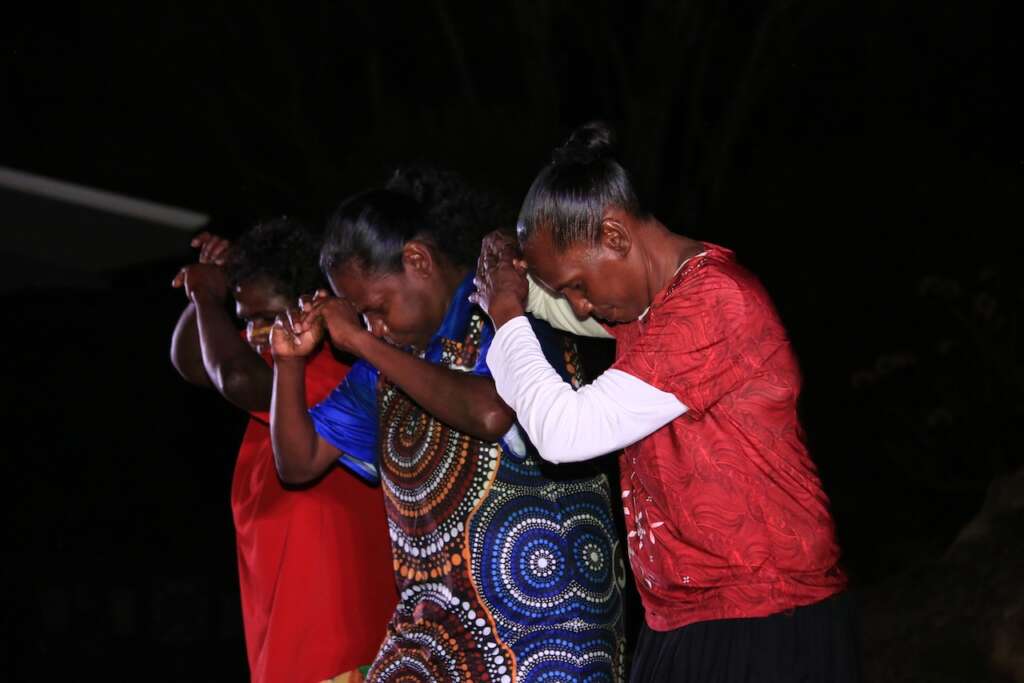 The courses have morphed over the five decades of Nungalinya’s history so far. From the original Bible and community development courses, the late 80s and early 90s added bicultural life skills and textile art courses to bridge the distance between traditional ways of being and the modern world, and to provide opportunities for employment and income generation.
The courses have morphed over the five decades of Nungalinya’s history so far. From the original Bible and community development courses, the late 80s and early 90s added bicultural life skills and textile art courses to bridge the distance between traditional ways of being and the modern world, and to provide opportunities for employment and income generation.
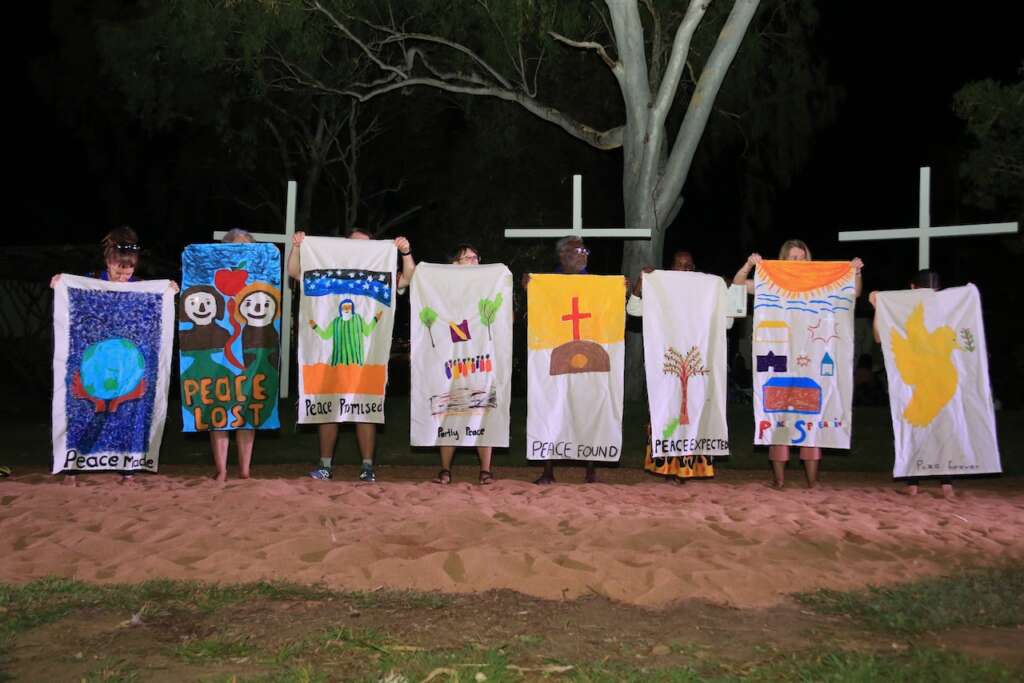 In the past 20 years, with increasingly strict requirements for accreditation, the college has attracted many students with courses in literacy and numeracy, media production, music, translation, chaplaincy and family wellbeing. Courses have been structured so that many students are able to continue to come to the college over a period of many years, benefiting greatly from the nurturing and stimulating Christian environment as they progress through courses from pre-certificate level to Certificate IV and beyond in the Australian Qualifications Framework. In the early decades of Nungalinya, many students came full-time and lived in cottages on campus. Now, all students come for short-term residential blocks, between two and four weeks, with several hundred students coming to one or another of the courses in any given year.
In the past 20 years, with increasingly strict requirements for accreditation, the college has attracted many students with courses in literacy and numeracy, media production, music, translation, chaplaincy and family wellbeing. Courses have been structured so that many students are able to continue to come to the college over a period of many years, benefiting greatly from the nurturing and stimulating Christian environment as they progress through courses from pre-certificate level to Certificate IV and beyond in the Australian Qualifications Framework. In the early decades of Nungalinya, many students came full-time and lived in cottages on campus. Now, all students come for short-term residential blocks, between two and four weeks, with several hundred students coming to one or another of the courses in any given year.
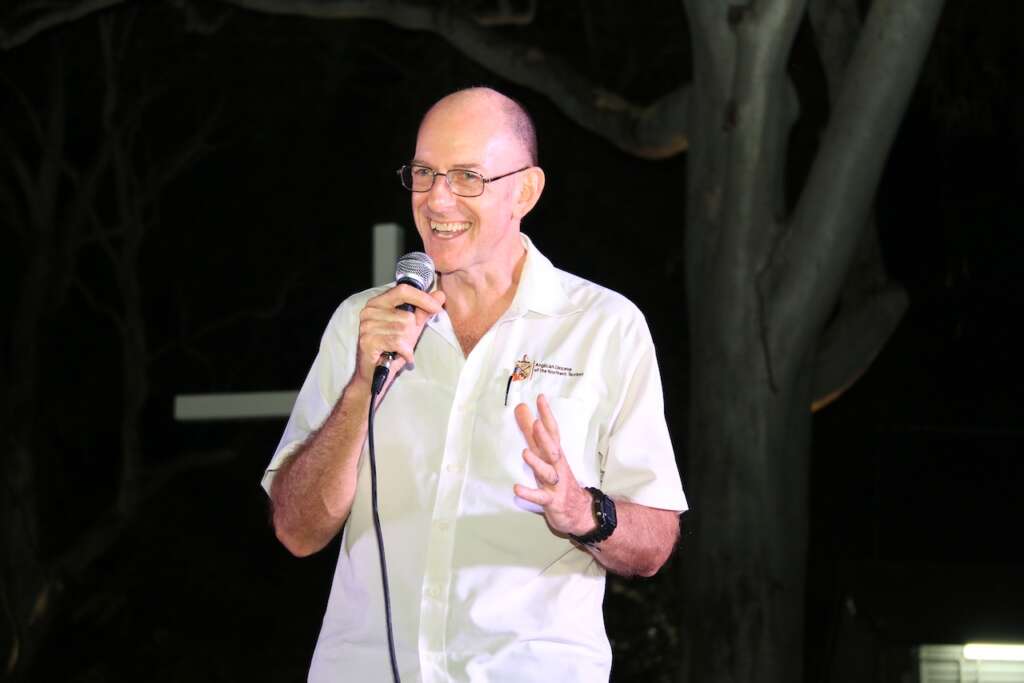
Greg Anderson speaks at Nungalinya’s 50th anniversary celebration.
With additional funding from philanthropic donors, the college is now able to expand the number of Aboriginal assistants and trainee teachers in all of the classrooms and courses. This will not only build Nungalinya’s capacity but will add a great gift of training and on-the-job experience for these people as they return to their churches and communities.
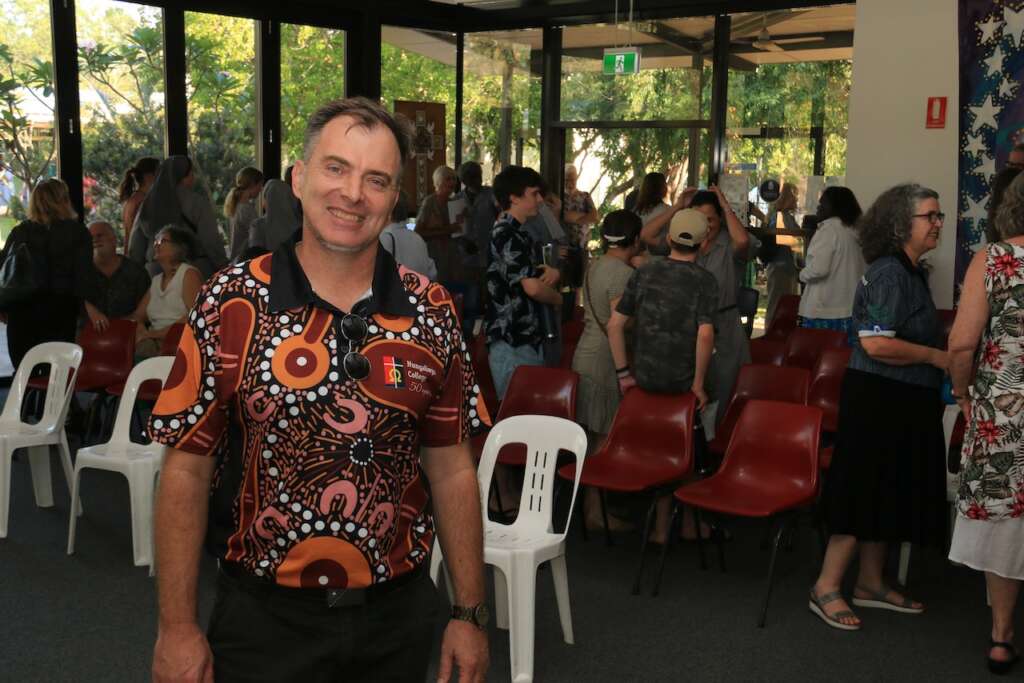
Ben Van Gelderen, principal of Nungalinya College
Congratulations to current principal, Dr Ben van Gelderen, to staff and students, for providing such a great anniversary celebration, not just showcasing Nungalinya’s 50 years of achievement but pointing forward to the future that the college will continue to develop into.
Greg Anderson is the Anglican Bishop of the Northern Territory.
Email This Story
Why not send this to a friend?
